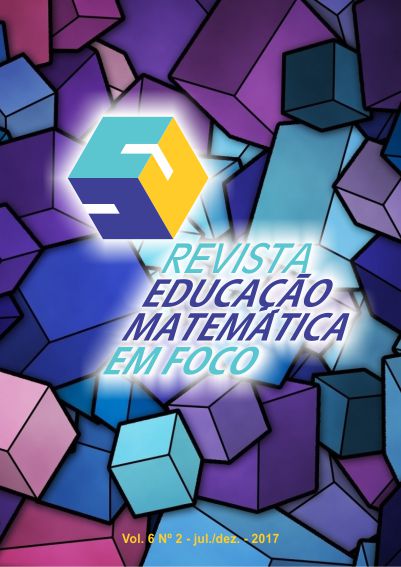PARTICIPAÇÃO NUMA CONSTELAÇÃO DE PRÁTICAS:
INICIAÇÃO DOS PROFESSORES DE MATEMÁTICA À PROFISSÃO DOCENTE
Palavras-chave:
iniciação de professores de matemática, comunidade de prática, constelação de práticas, participação, mentoringResumo
Este artigo aborda a integração dos novos professores de matemática na profissão docente, focando-se na aprendizagem como
participação em comunidades de prática. Assim, recusa a perspetiva que reduz a formação de professores à aquisição de uma
variedade de tipos de conhecimentos. Deste modo, dá-se especial importância à participação como um elemento decisivo no
processo de tornar-se professor. Adotando a perspetiva da aprendizagem situada em comunidades de prática, discutem-se os
conceitos fundamentais desta perspetiva e propõe-se ainda uma visão da iniciação à prática como envolvendo a pertença do
professor a uma constelação de práticas presentes na comunidade. Por fim, aponta-se uma via de concretização de integração
numa constelação de práticas que envolve o papel do mentor e o estabelecimento de relações de mentoring que pressupõe
uma troca de aprendizagens entre os mais experientes e os recém-chegados à comunidade.
Referências
ADLER, J. Lave and Wenger’s social practice theory and teaching and learning school
mathematics. In L. Puig e A. Gutiérrez (Eds.), Proceedings of the 20th Conference
of the International Group of the Psychology of Mathematics Education, Vol.
University of Valencia, Spain, 1996, pp. 3-10, 1996.
AMADO, N. O Professor Estagiário de Matemática e a Integração das Tecnologias
na Sala de Aula: Relações de mentoring numa constelação de práticas.
, 712 p. Tese de Doutorado. Universidade do Algarve, Faro, Portugal, 2007. Disponível
em: http://hdl.handle.net/10400.1/722
AMADO, N. Tecnologias na aprendizagem da matemática: Mentoring, uma estratégia para
a Formação de Professores. Educação Matemática Pesquisa, v.17, n.5, pp. 1013-1039,
CYRINO, M. Mathematics Teachers’ Professional Identity Development in Communities
of Practice: Reifications of Proportional Reasoning Teaching. Bolema, Rio Claro
(SP), v. 30, n. 54, p. 165-187, abr. 2016.
JAWORSKI, B. Insiders and outsiders in mathematics teaching development: the
design and study of classroom activity. Research in Mathematics Education, 6:1, pp.
- 22, 2004.
KOELLNER-CLARK, K.; BORKO, H. Establishing a professional learning community
among middle school mathematics teachers. In M.J. Høines e A.B. Fuglestad (Eds.),
Proceedings of the 28th Conference of the International Group for the Psychology of
Mathematics Education. Vol.2, pp 223-230, Bergen University College, Norway, 2004.
LAVE, J. Teaching, as Learning, in Practice. Mind, Culture, and Activity, Vol. 3, n.
, pp. 149-164, 1996.
LAVE, J.; WENGER, E. Situated learning: Legitimate peripheral participation.
Cambridge USA: Cambridge University Press, 1991.
LITTLE, J.; HORN, I.; BARTLETT, L. Identidade, Comunidade e Empenho: Tópicos
Emergentes na Investigação Sobre o Ensino Secundário. Revista de Educação, Vol.
, n. 2, pp. 9-20, 2002
NICKERSON, S.; MORIARTY, G. Professional communities in the context of teachers’
professional lives: a case of mathematics specialist. Journal of Mathematics Teacher
Education, n. 8, pp. 113-140, 2005.
SERRAZINA, L.; OLIVEIRA, I. Novos professores: primeiros anos de profissão.
Quadrante, Vol. 11, n. 2, pp. 55-73, 2002
SUNDLI, L. Mentoring-A new mantra for education? Teaching and Teacher Education,
, pp. 201-214, 2007.
WANG, J.; ODELL, S. Mentored Learning to Teach According to Standards-Based Reform:
A Critical Review. Review of Educational Research, Vol. 72, nº 3, 2002, pp.
-546.
WENGER, E. Communities of practice. Learning, Meaning, and Identity. Cambridge:
Cambridge University Press, 1998.
WENGER, E. Knowledge management as a doughnut: Shaping your knowledge strategy
through communities of practice. Ivey Business Journal, 2004. January/February
[online] http://www.iveybusinessjournal.com
WENGER, E.; MCDERMOTT, R.; SNYDER, W. Cultivating communities of practice.
Boston, Massachusetts, USA: Harvard Business School Press, 2002.



